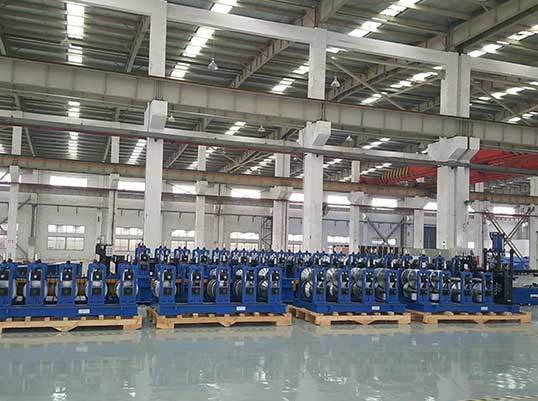Navigation Menu
Contact Us
- Email:
- info@wxavatar.com
- Address:
- Yurong Village, Yuqi Street, Huishan District, Wuxi, China.
Release Date:Oct 26, 2024 Visit:211 Source:ZCM Roll Forming Machine
The evolution of solar stand roll forming machine technology represents a significant stride in the manufacturing sector, particularly in the production of solar panel supports and frameworks. Roll forming machines have traditionally been employed in various industries to shape metals into desired forms efficiently. Within the context of solar technology, these machines have undergone substantial advancements, enhancing both productivity and precision.

Early roll forming machines were relatively simple, relying on basic mechanical principles to bend and shape metal strips into predefined profiles. Over time, these machines have become increasingly sophisticated, incorporating advanced control systems and precision engineering. Modern solar stand roll forming machines are now capable of producing intricate designs with high accuracy, ensuring that solar panels are securely supported and aligned.
One of the key advancements in solar stand roll forming machine technology is the integration of numerical control systems. These systems enable machine operators to input precise parameters, ensuring that each roll-formed component meets exact specifications. The integration of sensors and feedback mechanisms further enhances the precision of these machines, allowing for real-time adjustments and corrections during the manufacturing process.
In addition to precision, modern solar stand roll forming machines have also seen improvements in efficiency. High-speed roll forming lines can now produce large quantities of components in a short period, significantly reducing production time and costs. This increased efficiency is particularly beneficial in the solar industry, where demand for solar panels and their supporting structures is constantly growing.
The design of solar stand roll forming machines has also evolved to accommodate a wider range of materials. Traditional machines were limited to working with specific metals, but modern versions can handle a variety of materials, including aluminum, stainless steel, and even advanced alloys. This versatility allows manufacturers to choose the most suitable material for each application, ensuring optimal performance and durability.
Moreover, the durability and reliability of solar stand roll forming machines have improved significantly. Manufacturers have invested in robust materials and construction techniques to ensure that these machines can withstand the rigors of continuous operation. Regular maintenance and upgrades further extend the lifespan of these machines, reducing the overall cost of ownership and maximizing return on investment.
In terms of customization, solar stand roll forming machines now offer unprecedented flexibility. Manufacturers can design and produce machines tailored to specific customer requirements, ensuring that each machine is optimized for the intended application. This customization extends to the roll forming dies themselves, which can be easily changed to produce different profiles and shapes.
The advancements in solar stand roll forming machine technology have had a profound impact on the solar industry. By increasing precision, efficiency, and versatility, these machines have enabled manufacturers to produce high-quality solar panel supports and frameworks at a lower cost. This, in turn, has contributed to the broader adoption of solar energy, driving down costs and increasing accessibility for consumers.

As the solar industry continues to grow, so too will the demand for advanced roll forming machine technology. Manufacturers will need to stay at the forefront of innovation, continuously refining and improving their machines to meet the evolving needs of the market. By doing so, they can help drive further advancements in solar energy technology, ensuring a brighter and more sustainable future for all.